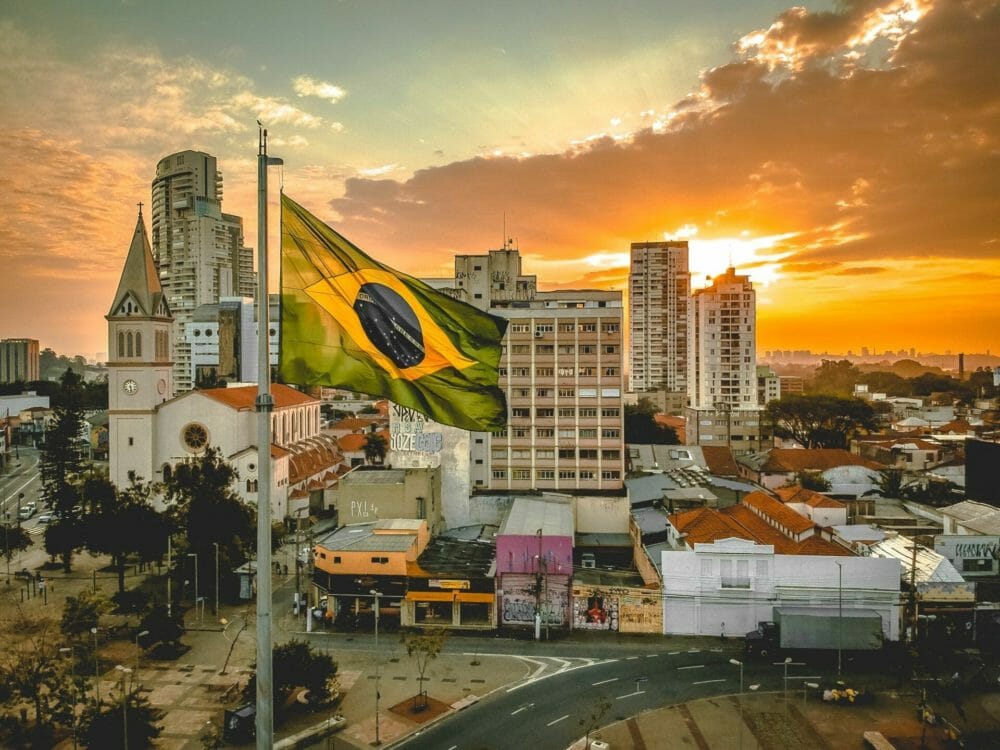Small farmers in Brazil have a new option when it comes to procuring farm inputs thanks to InstaAgro, an online direct sales platform for agricultural inputs, machinery, and parts. Led by family office Rolesis Holdings, the startup has raised $600k in seed funding, receiving its first tranche of $300,000 in 2019 and the second tranche at the beginning of 2020.
“Right now, if a small farmer in Brazil goes to a retailer to try to buy the product he needs he only has a few options and he usually has to switch products. Another major problem for small farmers is counterfeit products,” Daniel Bachner, InstaAgro investor and former Syngenta executive, told AFN.
InstaAgro was originally founded by partners Avram Slovic, an American scientist turned agtech executive now working for a new Flagship Pioneering venture in Brazil, along with Rodrigo Santini who comes from an extensive background in management consulting. (Flagship is the key investor behind and creator of Indigo Ag and Inari Agriculture.)
Brazil is home to 4.5 million rural producers that represent roughly $20 billion in crop protection input purchasing power, according to the company. The way that retailers currently offer inputs to agricultural producers in the country leaves small farmers in the lurch, however. Although there is a network of 5,000 resellers providing inputs throughout the country, they typically cater to large-scale farms that have their own on-staff agronomists and that buy substantial volumes. The stores are also usually dominated by one or two main brands like Syngenta, Bayer, or Corteva, with complementary products from generic chemical manufacturers filling the portfolio gaps.
Retailers are also unmotivated to serve small farmers as the cost of sales to producers who cultivate 100 hectares or less is high. Small scale producers typically focus on non-commodity crops like fruits, vegetables, and coffee. These factors coalesce into a scenario where small farmers are forced to go to great lengths to find the products they require and are often required to pay high prices.
Brazil also requires an agronomist to write a prescription for a crop protection product but the law is largely ignored.
“A common practice is that farmers receive over-the-counter farm prescriptions. That is not allowed but that’s what we have today. We are trying to send agronomists to the field to see the problem and build the right prescription,” Bachner says. “InstaAgro is connected to third-party agronomists through an Uber-like platform called ConnectAgro that sends an agronomist to the user’s farm to write a prescription tailored to their problems. If the farmer purchases through InstaAgro, the agronomist shares in some of the profit. It costs the farmer nothing to have the agronomist make the prescription.”
Incentivizing agronomists to send farmers through the platform is intended to drive additional marketing and awareness for InstaAgro, justifying giving away a slice of its margins on any input sale.
The company has adopted a drop shipping/just-in-time model that operates based on its contract with Bravo Logistics, a primary trucking company licensed to transport chemicals in Brazil. InstaAgro doesn’t own any of the products it sells. Instead, it fulfills orders by selling products readily-available in Bravo’s warehouses, moving a pallet of product from a warehouse to a Bravo truck and delivering directly to the farmer. If an input supplier does not work with Bravo, InstaAgro has identified other logistics solutions like using the regular mail service. Biologics requiring refrigeration are sent through specialized transport services.
The platform is already operational and entering what InstaAgro describes as the recurring stage where initial customers are coming back for seconds. It was able to deliver products ordered on the platform in five working days or less, which is a major difference for small scale producers who would otherwise have to go through a much longer process.
It currently has 16 active companies offering inputs through its portfolio and is taking a measured approach to adding more. Although the company wants to expand its product portfolio it wants to also ensure that its offering small farmers the best possible options.
“We believe we have the best suppliers for irrigation, seeds, and fertilizers,” Bachner says. “We want to bring on more partners in other segments that we don’t have today. We are in discussion with UPL, Bayer, and other companies.”
The new funding will also be used to facilitate expansion into some of Brazil’s southern states. Before it can sell agricultural inputs in each state, InstaAgro has to ensure that it complies with local licensing requirements. It took the company 12 months in some instances to obtain the requisite licenses. It’s currently authorized to sell in Goias, Sao Paulo, and Mins Gerais. The next wave will target Parana and Rio Grande do Sul.
Agribusiness Marketplaces secured $786 million in funding last year, according to AgFunder’s 2019 Agri-FoodTech Investing Report, with a median deal size of $1.5 million. Marketplaces are showing promise when it comes to alleviating some of farmers’ biggest complaints and challenges to securing vital inputs at affordable prices. This is putting pressure ag retailers to rethink their approach. It’s also creating an incentive for some input developers to support the creation of a new system that doesn’t thrive on stacking multiple margins on the manufacturer’s original price. Syngenta is an investor in Argentinian marketplace Agrofy while Monsanto made an investment in Canadian marketplace FarmLead.
Marketplaces are also popping up in various parts of the world from developing regions to the developed world. Germany’s Agrando closed a seed funding last month for its digital marketplace that hopes to give farmers more honest and transparent access to the products that they need. Instead of cutting out the middlemen, however, it’s working with existing vendors to digitize their offerings and make the system more efficient.





